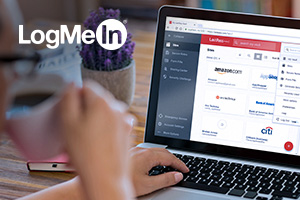Improve security now with a Microsoft Security and Threat Workshop
All around the world, companies are in the midst of a digital transformation. They’ve discovered that by tapping into new technologies – such as...
2 min read
![]() Zones
:
Dec 15, 2020 4:00:00 AM
Zones
:
Dec 15, 2020 4:00:00 AM

These are challenging times for any organization. For IT leaders at businesses of all sizes, it’s been difficult this year to adjust on the fly, teaching their people to work remotely and be just as productive as they always were. Not only can this bring significant disruption to people’s daily workflows, but often, another key concern emerges along the way, and it concerns security fortification.
At the same time that COVID-19 has taken its toll on businesses everywhere, a surge in cyberattacks also threatens to destabilize or ruin businesses. According to the FBI, cybercrime reports have quadrupled during the pandemic so far, while the U.S. Federal Trade Commission reports that Americans have lost at least $12 million to scams since January. And in large part, organizations are not prepared – Gartner’s recent Business Continuity Survey found that only 12% of organizations are “highly prepared” for the impact of coronavirus.
One key thing businesses can do to address these issues is to eliminate risks with password security. Poor password hygiene is a well-documented contributor to data breaches – according to the 2019 Data Breach Investigations Report (DBIR), 80% of data breaches can be traced to weak, reused, or stolen credentials. For this reason, many organizations are using enterprise password management (EPM) tools, which help to reduce or even eliminate poor password practices.
It’s also important that companies have plans for connecting the right person to the right resource every time. Understanding who has access to what is just as essential to security as having strong passwords. Even with strong passwords in place, IT needs to ensure that employees have access only to what they need to do their jobs. A single sign-on (SSO) platform is a great solution here, as it replaces passwords with a secure protocol that connects workers behind the scenes to their assigned resources, thus eliminating the risk of data breach.
And of course, it’s essential for administrators to block unauthorized and suspicious activity. When it comes to external threats, a layered approach is more effective. A username and password provide basic protection, but they are static pieces of data that can be shared, stolen, and leaked without requiring any additional proof of ownership. Multi-factor authentication (MFA) is much stronger, as it requires additional login information – two or more authentication factors – before access is granted to an employee.
For all of the above security strategies, LogMeIn can help. LogMeIn helps businesses large and small to maximize breach protection, using a holistic solution for identity and access management. Used individually, EPM, SSO, and MFA all provide unique benefits, but LogMeIn brings them all together under one umbrella.
And at Zones, we’re proud to say that we now have a strategic business partnership with LogMeIn. That means that for any clients out there looking to strengthen their security posture, we have the expertise and the business connections to help you design and implement the perfect solution for you.
Want to learn more about how we can assist you when it comes to Security Fortification? Keep reading our website, and we’ll walk you through it.

All around the world, companies are in the midst of a digital transformation. They’ve discovered that by tapping into new technologies – such as...

As companies these days go about the business of data center transformation, they often do so with a particular focus on minimizing IT disruption....

Is your organization looking to take strides forward in 2020, building on your past successes and achieving bigger and better things? If so, there’s...